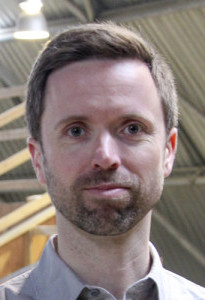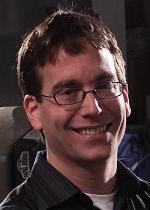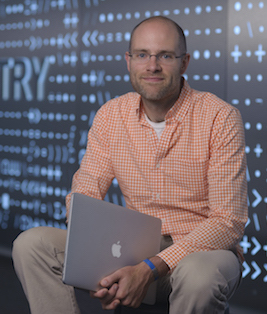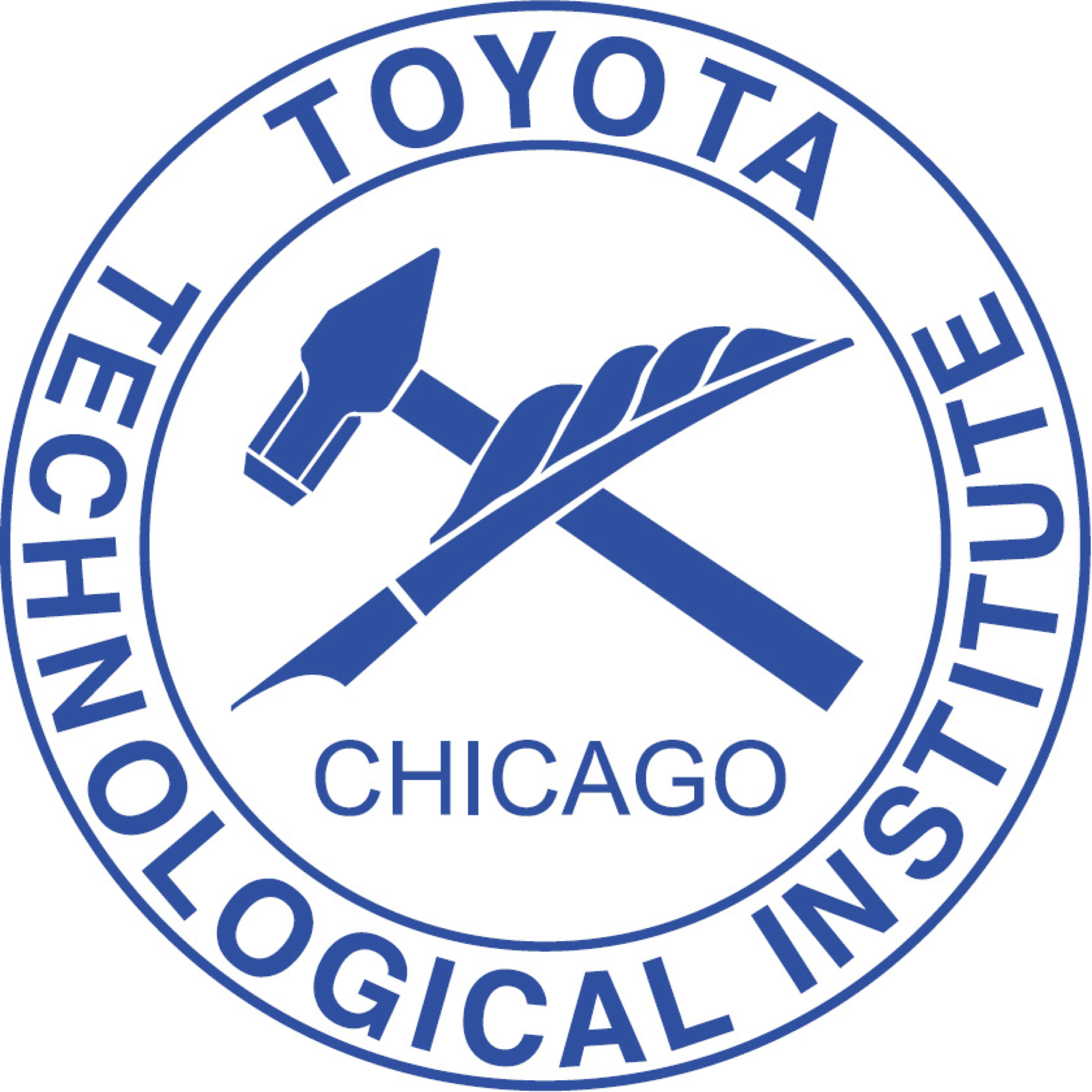2016 Midwest Robotics Workshop (MWRW)
March 17–18, 2016
Toyota Technological Institute at Chicago6045 S. Kenwood Avenue (map)
Chicago, IL 60637
Overview
The robotics field is experiencing tremendous growth as a result of algorithmic and technological advances, the availability of common, low-cost sensors and platforms, and a standardization in open-source development. These factors together with the growing community of talented, highly-trained roboticists combine to render feasible real-world applications in our homes and workplaces, and on our streets.
The Midwest Robotics Workshop (MWRW) is intended to bring together roboticists from academia and industry in and around Midwestern United States. It is an opportunity for researchers and practitioners to share their work with others and to network, with the goal of creating a more cohesive and vibrant robotics community in the Midwest. The workshop will feature invited talks by leading researchers, and an exciting collection of oral presentations and interactive poster sessions.
There is no cost to attend the workshop. Additionally, we we are offering a limited number of student lodging grants for the night of March 17 in order to encourage participation from outside the Chicagoland area.
If you have any questions, please contact the organizers.
Call for Participation
We invite all roboticists from the Midwest (broadly interpreted) to participate in the first annual Midwest Robotics Workshop to be held at TTI-Chicago on the University of Chicago campus (map) on March 17–18, 2016.
We encourage participants to use the workshop as an opportunity to present recent research either as a talk or during an interactive poster session. If you are interested in presenting, please submit a title and abstract summarizing your work. Since the workshop does not have published proceedings, abstracts that describe work that was previously published or is still in progress are welcome.
Invited Speakers

Tim Barfoot
Tim Barfoot is the Canada Research Chair in Autonomous Space Robotics and an associate professor in the Institute for Aerospace Studies at the University of Toronto. His research focuses on advanced visual navigation for mobile robots, with a particular emphasis on applications in field robotics. Tim has developed algorithms for long-range visual odometry and teach and repeat that enable robots to navigate over extended periods of time without the need for prior visual maps.

Todd Murphey
Todd Murphey is the Charles Deering McCormick Associate Professor in Mechanical Engineering at Northwestern University. Todd is interested in computational methods for mechanics and real-time optimal control, physical networks, and information theory in physical systems. His research considers applications in robotics and neuroscience, including control of assistive exoskeletons, software-enabled stroke rehabilitation, entertainment robots, and robotic exploration.

Russ Tedrake
Russ Tedrake is the X Consortium Associate Professor of Electrical Engineering and Computer Science in the Computer Science and Artificial Intelligence Laboratory at MIT. Russ' interests include machine learning-based control that exploits the natural dynamics of underactuated systems to realize legged robots capable of dynamic walking over rough terrain and aerial vehicles capable of aggressive flight. Russ was the lead of MIT's team, which participated in the DARPA Robotics Challenge.
Important Dates
| February 25, 2016 | Registration and Abstract Submission Deadline |
| February 17, 2016 | Student Lodging Grant Application Deadline | March 17–18, 2016 | Workshop |
Program
The workshop is starting at 10:00am on Thursday to allow time for people to commute to Chicago in the morning. It will end with lunch on Friday. Breakfast and lunch will be provided both days.
Thursday, March 17
| 10:00am–10:40am | Breakfast (provided) |
| 10:40am–11:00am | Welcoming Remarks |
| 11:00am–12:00pm | Plenary Talk (Chair: Matthew Walter) |
| , Robust Model-based Optimization for Humanoids and UAVs | 12:00pm–01:00pm | Lunch (provided) and Poster Session I Setup | 01:00pm–02:00pm | Poster Session I |
| 02:00pm–03:00pm | Invited Talk Session (Chair: Steve Vozar) |
| , Joint Behavioral Inference for Autonomous Driving | |
| , Robotic Data Gathering in the Wild | |
| , Underwater Mapping: New Robotic Approaches to an Old Problem | |
| 03:00pm–04:00pm | Plenary Talk (Chair: Seth Hutchinson) |
| , Computational Control Engines For Robotic Systems | |
| 04:00pm–04:20pm | Break |
| 04:20pm–05:00pm | Invited Talk Session (Chair: Thomas Howard) |
| , Human-Centered Principles and Methods for Designing Robotic Technologies | |
| , Coordination Dynamics for Human Robot Teams | |
| 05:00pm–06:00pm | Invited Talk Session (Chair: Volkan Isler) |
| , Visual Path Following for Humanoid Navigation | |
| , Robust Control Policies for Multi-Robot Systems | |
| , Flight Control of Articulated Soft Flying Robots |
Friday, March 18
| 08:30am–10:00am | Breakfast (provided) and Poster Session |
| 10:00am–11:00am | Plenary Talk (Chair: Edwin Olson) |
| , Experience is the Best Teacher: Using Past Performance to Continually Improve Localization, Terrain Assessment, and Path Tracking for Visual Route Following | |
| 11:00am–12:00pm | Invited Talk Session (Chair: Haluk Bayram) |
| , Integrated Motion Planning and Power Management for a Solar-Powered Ground Robot | |
| , Ergodicity and Autonomous Exploration | |
| , Safe and Comfortable Motion Planning and Control in Dynamic and Uncertain Environments | |
| 12:00pm–12:10pm | Break |
| 12:10pm–12:50pm | Invited Talk Session (Chair: Michael Zinn) |
| , Intelligent Decisions in Uncertain Terrains | |
| , Measuring the Robustness of Legged Locomotion over Uncertain Terrain | |
| 12:50pm–01:00pm | Closing Remarks |
| 01:00pm–03:00pm | Lunch (provided) |
Poster Session I (Thursday)
- , 3D Printed Surgical Manipulator for Minimally Invasive Lumbar Discectomy Surgery
- , A Biologically-Inspired Salient Region Filter for Faster High-Fidelity Robot Perception
- , A Graph Isomorphism-based Technique to Form Configurations with Modular Robots
- , Adaptive Forward Error Correction with Adjustable-Latency QoS for Robotic Networks
- , AlbedoTransfer: Real-time Understanding of Intrinsic Scene Properties
- , Control of Micro Aerial Vehicles
- , Design and Validation of a Force-controllable Knee Exoskeleton for Sit-to-Stand Assistance
- , Design of a Bipedal Walker with Core-Located Actuator Inspired from Bartenieff's Basic Six
- , Dynamic Obstacle Tracking for Autonomous Vehicles
- , Evaluation and Benchmark of Multiview 3D Reconstruction in Underwater Environments
- , Feature Learning for Estimation, A Look at Supervised Dictionary Learning for Covariance Prediction
- , Fractional-Order Differential Equations for Monitoring of a Robot Formation
- , Generating and Evaluating Expressive Movements in Robots
- , High-dimensional Feature Learning for Real-time Robotic Applications: Reducing the Curse of Dimensionality for Recursive Bayesian Estimation
- , Holistic Perception Algorithms for Mobile Robots
- , Integrated Task and Motion Planning for Multiple Robots under Path Uncertainties
- , Interleaved Continuum Rigid Manipulation
- , Latent Modeling of UWB Localization with Factor Graphs
- , Learning from and about humans using an autonomous multi-robot mobile platform
- , Leveraging Coordination Dynamics to Enable Human Robot Teams
- , Accurate Vision-based Vehicle Localization using Satellite Imagery
Poster Session II (Friday)
- , LIDAR-assisted Turn Indicator Detection for Autonomous Vehicles
- , Listen, Attend, and Walk: Neural mapping of Navigational Instructions to Action Sequences
- , Mapping the Marine Environment through Coordinated Autonomy
- , Mobile Robot Motion Behavior Modulation for Assisting Elderly People's Everyday Activities in Home Environment Using Laban Movement Analysis
- , Model-based object tracking in LIDAR scan data
- , Multi-Policy Decision Making for Robot Navigation in Dynamic Social Environments
- , Online Graph Sparsification for Planning with Approximate Distributions in Active SLAM
- , Gathering Bearing Data for Target Localization
- , Pain Synthesis for Humanoid Robots
- , Probabilistic Energy Mapping For Exploration and Control With Unmanned Ground Vehicles
- , Reciprocal Teleoperation between an Anthropomorphic Manipulator and an Interactive Exoskeleton
- , Revisiting Occupancy Grid Rasterization: An OpenGL Approach Leveraging GPU Resources
- , Spatiotemporal Articulated Models for Dynamic Environments
- , Synergistic Design of a Bio-Inspired Micro Aerial Vehicle with Articulated Wings
- , Task Space Control for Static Balance of Underactuated Bipeds
- , Probabilistic Models for Real-Time Natural Language Corrections to Assistive Robotic Manipulators
- , Towards real-time underwater 3D reconstruction with plenoptic cameras
- , Treating Upper Limb Motor Skill Deficiencies in Children with Autism Spectrum
- , Visual-Inertial Curve SLAM
- , Environment and Solar Map Construction for Solar-Powered Mobile Systems
- , Towards End-to-End Learning of Manipulation Actions by Learning Reward Representations from Videos
Accommodations
There are two hotels nearby TTI-Chicago that provide shuttle service throughout the University of Chicago campus: The Hyatt Place Chicago-South and the LaQuinta Inn & Suites Chicago Lake Shore. There are also several reasonable options in downtown Chicago, such as Hotel Felix.
We will provide a limited number of grants for student lodging at a nearby hotel for the night of March 17. Please see the Registration section for information on how to apply.
Parking: A limited number of parking passes are available for TTIC's parking lot. Please contact the organizers to reserve one. Park in the building's parking lot and get your parking pass from the security guard in the lobby. There is also free parking in the commuter parking lot at 60th St. and Stony Island Ave. and free street parking on many streets near TTIC (just beware of "permit parking" and "street cleaning" signs!). Parking can be found on 61st Street (between Woodlawn Ave and Blackstone Ave), on Dorchester Street (between 60th and 61st Streets).
Registration
Please register for the workshop here. There is no cost to register.
We will be awarding a limited number of lodging grants for students outside the Chicagoland area who would like to attend MWRW. The grants will provide a one night stay at a nearby hotel on March 17.
Organizers
Matthew Walter,
TTI-Chicago (Organizer)
Ryan
Eustice, University of Michigan (Co-organizer)
Seth Hutchinson,
University of Illinois at Urbana-Champaign (Co-organizer)
Edwin
Olson, University of Michigan (Co-organizer)
